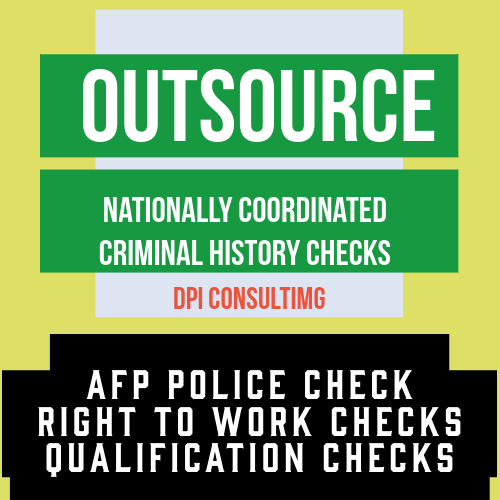Ultimate Guide to Background Checks for HR Managers and Recruiters
Ensure a safe workplace with background checks for hiring the right candidates.

Hiring the right employees is crucial to maintaining a safe and productive workplace. As an HR manager or recruiter, conducting thorough background checks helps ensure that candidates meet the qualifications and integrity standards required for a given role. This guide will help you navigate background checks, including their importance, types, and best practices to streamline the hiring process.
Why Background Checks Matter in Recruitment
Background checks are vital in ensuring that companies hire trustworthy, qualified candidates. By verifying a candidate’s history, HR managers and recruiters can:
- Minimise hiring risks
- Prevent fraud and workplace misconduct
- Ensure compliance with legal and regulatory requirements
- Improve overall workforce quality
- Protect the company reputation and workplace safety
Organisations risk hiring individuals who may not be suitable for their roles without proper screening, leading to potential legal liabilities and operational inefficiencies.

Background Police Check
Secure, fast, and affordable. Keeps your workers safe. 100% Online Process
Key Types of Background Checks
HR departments and recruitment agencies conduct several types of background checks depending on the role and industry. Below are some of the most common checks used in hiring decisions:
- Right-to-Work Checks
Ensuring a candidate is legally permitted to work in Australia is mandatory. Employers verify work rights by checking visas, work permits, or citizenship documents. Non-compliance can result in significant legal consequences, including fines.
- Employment History Verification
This check confirms a candidate’s past job roles, responsibilities, and employment duration. HR teams may contact previous employers directly or use third-party background check providers to streamline the process.
- Employment Reference Checks
Speaking to past employers or supervisors provides insights into a candidate’s work ethic, performance, and professional behaviour. Recruiters should ask structured questions to gather relevant information.
- Character Reference Checks
Unlike employment references, character references assess a candidate’s personality, values, and interpersonal skills. These checks are particularly useful for roles requiring high ethical standards and integrity.
- Educational Qualification Verification
HR professionals verify academic credentials by contacting educational institutions or online verification platforms. This ensures candidates have the required qualifications for their roles.
- Criminal Background Checks
Checking an applicant’s criminal history helps employers identify potential risks associated with hiring. Australian employers can verify criminal records through a Nationally Coordinated Criminal History Check (NCCHC) through accredited providers like AuthNTick.
- Professional Licenses and Certifications
For regulated professions (e.g., healthcare, finance, law), HR managers must confirm that candidates hold valid professional licenses and certifications. Online verification services expedite this process.
- Credit History Checks
Credit checks assess a candidate's financial responsibility for financial roles or positions involving sensitive data. Employers must obtain consent before conducting this check.
How to Conduct Background Checks Efficiently
Conducting background checks efficiently requires a structured approach. First, employers must obtain written consent from candidates before initiating any checks. This step ensures compliance with privacy laws and ethical hiring practices. A trusted background screening provider, such as AuthNTick, can streamline the process, providing accurate and legally compliant results. Additionally, automating the screening process with technology-driven solutions reduces manual effort and speeds up verification. To ensure credibility, employers should always verify information from reliable sources, such as government agencies, educational institutions, and credit bureaus. Lastly, following legal and ethical guidelines is essential to maintain compliance with Australian privacy laws and employment regulations. Applying background checks consistently across all candidates helps avoid discriminatory practices and ensures fairness in the hiring process.
Choosing the Right Background Check Provider
Selecting the right screening provider is crucial for efficient hiring. Consider the following when choosing a background check service:
- Comprehensive Services: Ensure the provider offers all required checks.
- Fast Turnaround Time: The quicker the verification, the faster you can fill positions.
- Accuracy and Reliability: Work with accredited providers that deliver precise and legally compliant results.
- Customisable Packages: Flexible service plans help tailor screenings based on company needs.
Final Thoughts
Background checks are a crucial step in hiring the right employees. HR managers and recruiters must implement a structured and legally compliant screening process to mitigate hiring risks. Partnering with a trusted background check provider, like AuthNTick, can help streamline the process while ensuring accuracy and compliance.





